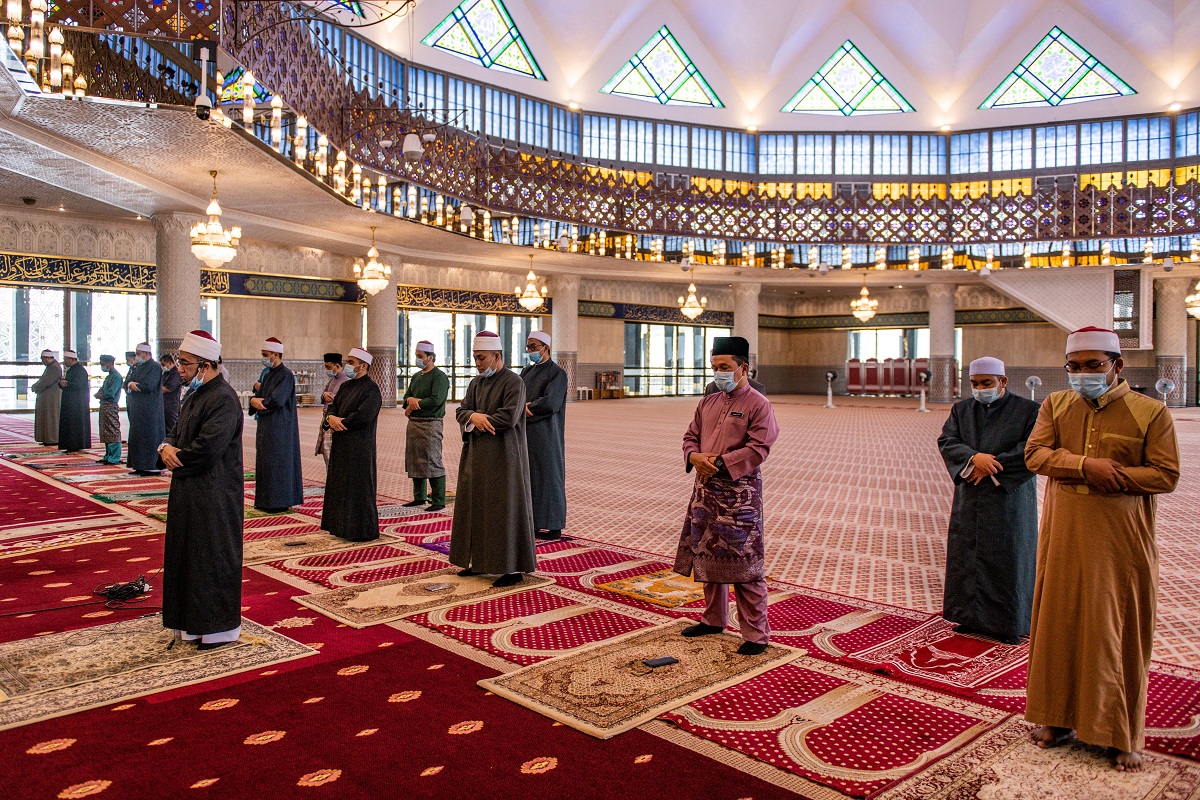Some places of worship in Malaysia reopened on Friday after an almost two-month long lockdown due to the COVID-19 pandemic.
The capital Kuala Lumpur along with some other states such as Selangor, Perak and Johor, has eased a ban on mass prayers in mosques and other religious places starting Friday with congregations limited to 30 people or less and physical distancing measures to prevent the spread of the infection, reports Efe news.
Advertisement
Zulkifli Mohamad Al-Bakri, the religious affairs minister of Malaysia, said in a statement on Thursday that the gradual opening of mosques will allow Muslims to prepare for the Eid holiday, which marks the end of the fasting month of Ramzan and falls on May 24 this year.
Zulkifli said that the government was aware of the importance of praying in mosques for Muslims although he added that prayers could be done at home as well.
The restrictions on prayer have not been applied to “madrasas”.
On May 4, Malaysia, which has more than COVID-19 6,800 cases and 112 deaths, began a staggered easing of restrictions on the activities and movements of people that had come into effect on March 18.
One of the biggest coronavirus outbreaks in the country occurred at a religious event attended by about 16,000 people from countries around the world at the Sri Petaling mosque in Kuala Lumpur between February 27 and March 1.
At least 600 people who attended this religious gathering tested positive for COVID-19, including 200 Malaysians as well as Filipinos, Indonesians and Thai, who took the coronavirus infection back to their countries.











